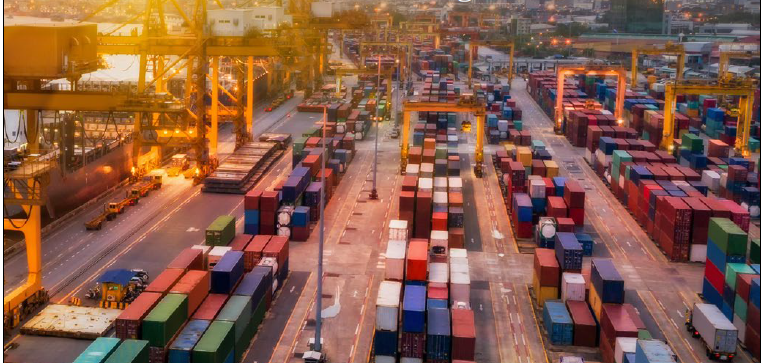ADVOCACY: Facilitating global trade
Today, Saudi Arabia is the world’s 20th largest exporter of goods and the 32nd largest importer in the world. In 2018, the Kingdom ranked 39 out of 140 countries in the Global Competitiveness Report. As a result, trade is a crucial tool for building on this success.
In its 2018 budget, Saudi Arabia increased its investment in infrastructure and transportation by 86%, reaching a total of $14.4 billion. These funds are supporting key organisations and stakeholders, who are transforming Saudi Arabia into an advanced global logistics hub.
Railway capacity, ports, airports and roads are all crucial to the strategic plans of the General Customs Authority, where the Ministry of Transport received $46.6 million to enhance the efficiency of port infrastructure – with more than 3,400km of coastline, Saudi Arabia’s ports are vital to international maritime trade.
Many of the most recent developments have been pioneered through the ambitious goals of Saudi Vision 2030, launched by HRH Crown Prince Mohammed bin Salman bin Abdulaziz Al Saud.
As part of the Kingdom’s future strategy and the customs’ reforms, trade is a driving force for a diversified and prosperous economy.
LEADING CHANGE
For more than 90 years, the General Customs Authority of Saudi Arabia has forged the development of trade and logistics in the kingdom, and spurred the development of a fully integrated, trade and logistics hub, between east and west.
The organisation, led by governor of the General Customs Authority, His Excellency Ahmed AlHakbani, has counted many success stories throughout its history. However, the pace has increased in recent years as the kingdom pushes towards the achievement of Vision 2030.
Driving its own transformation in line with these objectives, Saudi Customs streamlined the export-import processes, and radically transformed the administrative and documentary process, enabling traders to submit their documents electronically before vessel arrival to the port. Today more than 80% of pre-arrival declarations clear in less than 24 hours, compared to eight days previously.
In this regards, Saudi Customs established the Customs Targeting Center, an innovative centre that helps in overcoming operational obstacles, and finding technical solutions that would contribute to enhancing the speed and flexibility of import flows while reducing the level of illegal smuggling.
Saudi Customs has also embarked on such initiatives as the establishment of bonded zones and the implementation of the Authorised Economic Operator (AEO) programme.
Bonded zones are key to positioning the kingdom as a global logistics hub and leveraging its strategic geographic position, which links Asia, Europe and Africa.
Bonded and re-export zones have been established to conform to GCC unified customs law and match international standards. Saudi Customs is currently expanding the number of bonded zones in partnership with King Salman Energy Park, the Royal Commission for Jubail and Yanbu, and Saudi Cargo.
In line with the ambitions set out in Vision 2030, the bonded and re-export zones provide integrated logistics services to support the facilitation of exports, attract foreign and local investments, support domestic production, diversify GDP sources and open new markets.
Meanwhile, the AEO initiative – officially launched in 2017 – enhances economic and social security and empowers Saudi Customs to improve the security of global supply chains and facilitate international trade. The General Customs Authority launched AEO to enhance and strengthen its partnership with private business entities and the programme is a pillar of the World Customs Organization’s framework of standards to secure and facilitate trade.
TRADE FOR THE FUTURE
Looking to the next developmental milestone, digitalisation of procedures is currently underway, facilitated by digital ledger technology such as blockchain.
In a pilot programme with IT partner Tabadul, the National Single Window FASAH integrated with TradeLens, a blockchain-enabled global shipping solution jointly developed by Maersk and IBM.
The aim was to encompass immutability and traceability, reduce reconciliation, and boost auditability, and compliance. Building on this success, the second milestone was the first TradeLens shipment powered by blockchain, which travelled from Dammam Port in Saudi Arabia to Rotterdam.
In its mandate to transform the kingdom into a global logistics hub, Saudi Customs will continue to increase the volume of electronic declarations, fully implement the AEO programme, and continue to digitise processes to enhance efficiency and effectiveness. We ask that G20 leaders continue to push for the necessary regulatory framework to ensure the kingdom’s visions become reality.












